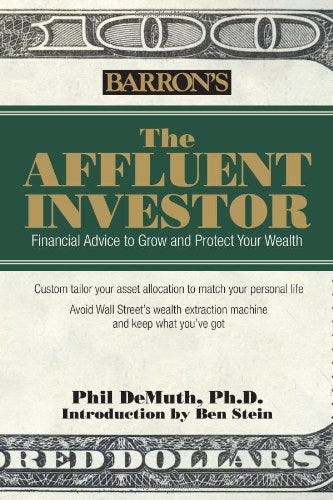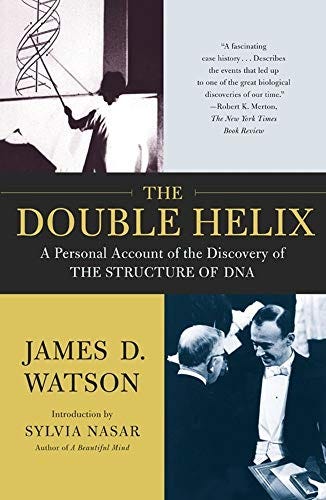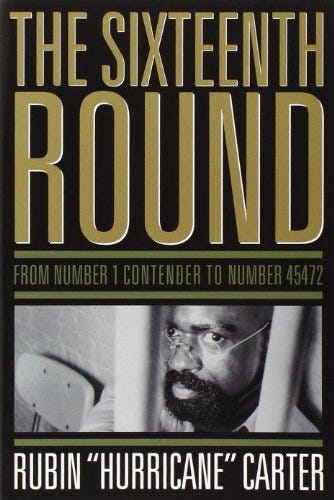The Sit-Up Test: Winning the Battle Between Complacency and Tenacity
Books that changed my thinking, behaviors, and life
Hello,
Often, decisions arise in my life where my next step—my next move—is a negotiation between two versions of myself.
On one side, there’s Complacent Adam, who wants to coast, who whispers that I’ve done enough. On the other, there’s Tenacious Adam, who reminds me that I can do more, that I should do more.
Let’s start with a relatable example, one we’ve all faced in some form.
For the past thirty years, my gym routine has stayed largely the same. I’m a creature of habit. Sit-ups are a core part of that routine. And I hate them. The moment I get on the decline bench, the mental chatter begins.
At twenty reps, Complacent Adam makes his case.
“Twenty’s a solid number. Why push it? You’ve done enough.”
Tenacious Adam immediately fires back.
“Enough? You’re better than that. Keep going.”
By the time I hit thirty, Complacent Adam gets more persuasive.
“You’ve got work waiting at home. Thirty is respectable. No one would fault you for stopping now.”
Tenacious Adam doesn’t flinch.
“You made a promise to yourself. Finish what you started.”
Some days, Complacent Adam wins. Other days, Tenacious Adam does.
But the outcome isn’t random—it depends on why I’m doing what I’m doing.
I’ve learned that Tenacious Adam always has the advantage when I focus on the real reason behind my actions.
The sit-ups? They’re not about having washboard abs (though it would be nice) or looking good at the beach.
They’re about something much bigger—staying healthy so I can be active for my kids, my wife, my friends. So I can keep doing the things I love for as long as possible.
This same battle took place during medical school. I remember studying for exams, locked in my apartment with textbooks stacked around me, running on coffee and stress. After hours of studying, the negotiation began.
“You’ve covered enough. You know this material. Get some rest.”
“You know it, or you know it well enough to pass?”
If I had been studying for the grade, I probably would’ve stopped.
But I wasn’t.
I was studying because someday, a real patient—someone’s mother, someone’s son—would be sitting in front of me, relying on what I knew. And in that moment, “good enough” wouldn’t cut it.
Often, we do things without truly understanding why we’re doing them. Or worse, we do them for a reason that lacks real meaning—because society tells us we should, because it looks good on paper, because everyone else is doing it.
Think about a decision in your own life—one you’re facing now, or maybe one you’ve been avoiding. What’s driving it? What’s it really for? If you asked yourself why—not just once, but again and again, peeling back the layers until you reach the core of it—would it change how you approach it? Would it help you push through? Would it get you to the other side?
When the next moment of discomfort comes, when you find yourself in that negotiation, don’t just listen to the loudest voice. Listen to the truest one. The right answer—the real answer—will always push you forward.
Welcome to this week’s Three Book Thursday.
1. Wealth management
The Affluent Investor: Financial Advice to Grow and Protect Your Wealth
Summary
I’ve read a lot of personal finance books, but few have been as tactical, direct, and immediately useful as The Affluent Investor. This isn’t another book about getting rich—it’s about staying rich, about making smart decisions once you’ve already built wealth, and about avoiding the kind of missteps that can erase years of hard work.
What struck me about this book was how practical and unsentimental it is. DeMuth doesn’t waste time hyping up market trends or selling you on the next big investment strategy. Instead, he focuses on the realities of wealth preservation—why risk is the silent killer of financial security, how lifestyle creep quietly erodes your freedom, and why most people sabotage themselves with emotion-driven investment decisions. He makes a compelling case that financial success isn’t about chasing the highest returns; it’s about managing risk, minimizing mistakes, and maintaining a margin of safety in everything you do.
This book resonated with me so much that I reached out to DeMuth after reading it—I wanted to dig deeper into his thinking. And you can see how much I valued this book by the sheer volume of notes I took. It reinforced something I’ve come to believe: wealth isn’t just about numbers in an account—it’s about control, security, and the ability to make decisions on your own terms. If you’ve worked hard to build something, this book will show you how to protect it.
The Affluent Investor is essential reading for anyone serious about long-term financial security. Whether you’re a high-income professional, an entrepreneur, or someone who simply wants to make smarter financial moves, this book delivers.
Favorite Quote, Insight, & Principle
Quote: If you have a $2,000 monthly mortgage payment, grandma can help. If you have a $20,000 monthly mortgage payment, no one can help. Losing your home vs not losing your home–that is the difference maintaining a margin of safety in your personal finances can make.
Quote: In investing, ignorance is not bliss; it's a disaster.
Insight: The Great Depression was a school that taught that no matter how much you have, it can all be taken away.
Insight: If you really want to ruin your kids' lives, make sure that they receive millions of dollars when they are 21 years old.
Principle: Let someone else keep up with the Joneses.
Author: Phil DeMuth
Themes: Wealth management, Personal finance, Investing, Living a full life
2. Memoir
The Double Helix: A Personal Account of the Discovery of the Structure of DNA
Summary
Some books are packed with wisdom—lines you underline, reread, and reflect on for years. The Double Helix isn’t that kind of book. It’s not full of profound life lessons or deep philosophical insights. But what it is—and why I think everyone should read it—is the story of one of the most important discoveries in human history: the structure of DNA. Understanding how this breakthrough happened is just as important as the discovery itself.
James Watson’s account of the race to uncover the double helix is raw, competitive, and, at times, chaotic. It’s a reminder that science isn’t always the polished, methodical process we imagine—it’s often messy, driven by ego, rivalry, and moments of sheer luck. Watson and Crick weren’t the most experienced scientists in the field, nor did they have the best resources, but they had the right mindset: an obsession with solving the problem, a willingness to challenge authority, and the ability to recognize a breakthrough when they saw it.
This book is about more than just DNA—it’s about intellectual pursuit, about following curiosity with relentless energy, and about how history is shaped not just by brilliance but by timing, competition, and the ability to see what others have missed. It’s a lesson for anyone in any field: success doesn’t always go to the most qualified—it goes to those who keep pushing, questioning, and putting the pieces together before anyone else does.
Favorite Quote, Insight, & Principle
Quote: As I hope this book will show, science seldom proceeds in the straightforward logical manner imagined by outsiders. Instead, its steps forward are often very human events in which personalities and cultural traditions play major roles.
Insight: Science moves with the spirit of an adventure characterized both by youthful arrogance and by the belief that the truth, once found, would be simple as well as pretty.
Principle: It has not escaped our notice that the specific pairing we have postulated immediately suggests a possible copying mechanism for the genetic material.
Author: James Watson
Themes: Memoir, Science
3. Memoir
The Sixteenth Round: From Number 1 Contender to Number 45472
Summary
I first came across The Sixteenth Round after watching The Hurricane—a movie I became obsessed with (Denzel crushed it). I watched it over and over, drawn to Rubin “Hurricane” Carter’s story, his resilience, and the sheer injustice of what happened to him. At the end of the film, the credits mentioned his book, and I knew I had to read it. While the movie is more dramatic, the book is something else entirely—it’s raw, personal, and powerful in a way that no Hollywood adaptation could ever capture.
Carter’s story isn’t just about boxing. It’s about survival, injustice, and the power of the human mind to transcend even the most unimaginable circumstances. At the height of his career, a top middleweight contender with a shot at the title, he was wrongfully convicted of a triple homicide and sentenced to life in prison. But what makes this book remarkable is not just the injustice—it’s how Carter responded to it. He refused to be broken. He refused to let the system define him. Stripped of his freedom, he used the only weapon he had left: his mind.
In prison, he educated himself relentlessly, training his mind as he once trained his body. He dissected the legal system, fought his own case, and refused to wear a prison uniform because he refused to accept that he was a prisoner. His belief in his own innocence never wavered, and neither did his determination to reclaim his life. It took 19 years, but he finally won.
What struck me most about this book is that it’s not just about one man’s fight—it’s about the fight we all face. The fight to define ourselves. The fight to hold onto dignity when the world tries to strip it away. The fight to stay mentally strong in the face of forces beyond our control. Carter’s life is proof that no matter how dark things get, no matter how much is taken from you, your mind remains your own. And with that, you can build a future—even if the world has tried to bury you.
Favorite Quotes, Insights, & Principles
Quote: Men without dignity are like clowns without an audience, pathetic and lost.
Insight: You can gain reconciliation from your enemies, but you can only gain peace from yourself.
Principle: Hatred and bitterness and anger only consume the vessel that contains them. It doesn’t hurt another soul.
Author: Rubin “Hurricane” Carter
Themes: Memoir, Boxing
Every day, we negotiate with ourselves. There’s always a choice—push forward or ease up, lean in or step back. The voice of complacency is persuasive, offering an easy out, a rational excuse. But the voice that matters, the one that shapes who we become, is the one that refuses to settle.
This negotiation isn’t just about self-discipline—it’s about survival, about shaping the future before it shapes us. History’s biggest breakthroughs didn’t come from those who coasted; they came from those who stayed in the fight. The pursuit of discovery, the pursuit of justice, the pursuit of financial security—none of it happens by accident. It happens because someone, at some point, refused to stop.
There’s a moment in every journey where the obstacles feel insurmountable, where the losses pile up, and quitting seems like the logical move. But the ones who make it through—the ones who leave an impact—are those who understand that even when everything is taken from them, their mind remains their own. Whether it’s in a lab, a courtroom, a prison cell, or simply the quiet moments of self-doubt, the greatest victories start with a decision: to fight, to endure, to hold the line when it would be easier to let go.
So the next time you find yourself at that crossroads, ask yourself not just what you’re doing, but why. Because when your reason is strong enough, when the fight means more than the fatigue, the right voice will always win.
Always ❤️📚💡
Three Book Thursday is free, but there are many costs to create these posts each week. So, can you do me a favor?
If you find value here, please support the newsletter.
Or,
Please share Three Book Thursday with a friend, college, family member, or post it to your socials. I’m working hard to grow this audience, but let’s be honest—you’re probably better at it than I am.
Or, do both!






